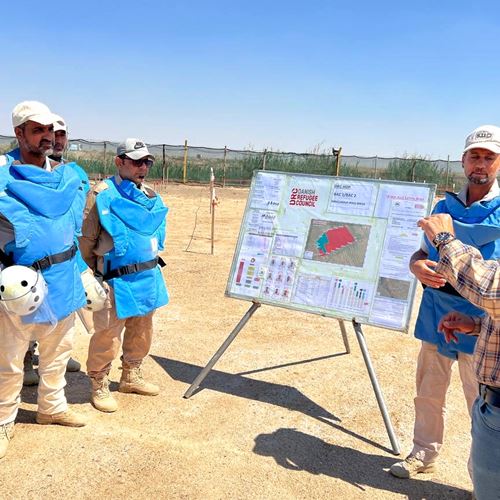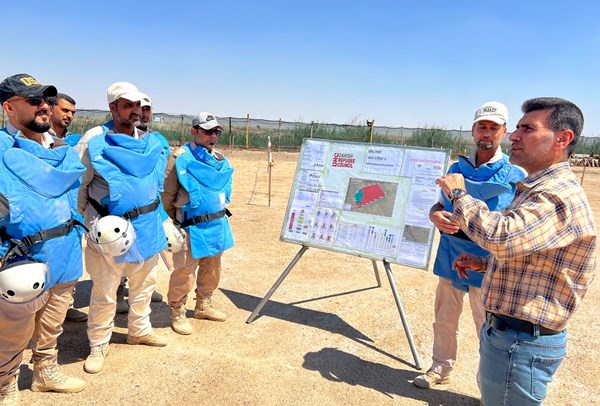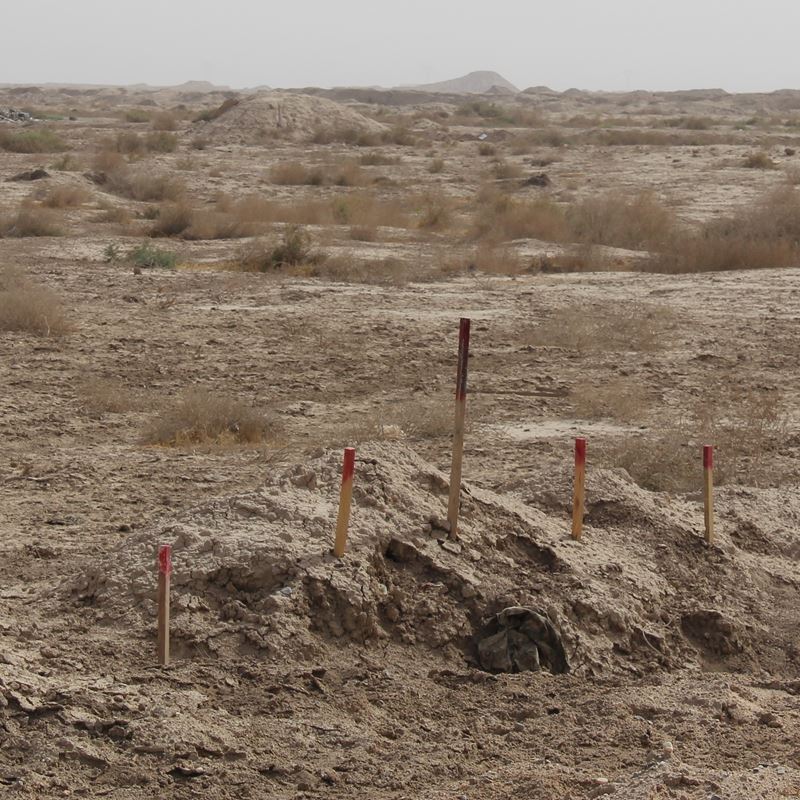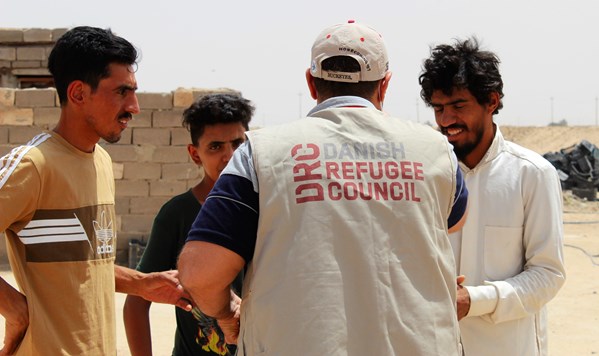20 years of mine action in Iraq
On the occasion of International Day for Mine Awareness and Assistance, Mohammed Qassim Abdulridha, Humanitarian Mine Action Project Manager with the Danish Refugee Council (DRC), reflects on his twenty years’ experience of working in the sector. For seventeen years, Mohammed has worked with DRC (formerly the Danish Demining Group (DDG)) in Basra, Iraq. The Southern Governorate remains heavily contaminated as a result of the 2003 Iraq war, the 1991 Gulf war and the 1980-1988 Iran-Iraq war. More than 10% of land in the governorate remains contaminated with explosive ordnance.

In my 48 years of life, Iraq has gone through many waves of conflict. Each has left a lasting impact on communities, and a devastating legacy of contamination of explosive ordnance that continues to this day.
By the start of the 2003 Iraq war – when DRC first started its operations in the country – the land was already littered with mines. Until that point, I’d been working in shipping, traveling around the world on sea freights. But by that time, I wanted to be close to my family in Basra, in the south of the country – especially because things seemed about to kick off again.
It was only as I started to settle back home that I started to realize how much of a risk contamination was in my community. As I heard about accidents from my neighbors and was warned of the risks by the UN, I knew I wanted to do something to help.

Mohammed briefs his team in Basra, March 2023.
After 20 years of working in mine action, I’ve come to think of contamination as a disease. Back then, it was everywhere; only the Basra city center was clear – and even then, there were risks. And it’s a deadly disease. Every day we were hearing about accidents – men, women, children. It didn’t discriminate.
But, once clearance is complete, that disease all but disappears. Risk education helps – it’s key to prevention – but when we do clearance, it is life changing. Recovery is immediate – you can see it in people’s faces. Their children are safe, they can work freely again, they can travel. Since 2003, DRC alone has reached hundreds of thousands with risk education and cleared tens of millions of square meters of explosive ordnances. Now, when I travel around Basra, I can see the impact clearance has had – you see roads, housing, agriculture projects and development in areas where before there was nothing.
Still, Iraq remains one of the most contaminated countries in the world. There’s so much left to do. While fighting in the conflict with Daesh didn’t reach Basra, it slowed progress and left new areas of contamination across the country. And while we don’t hear of accidents daily anymore, they’re often still reported weekly. Just a few days ago, two men were killed. And there was an accident a month ago that still haunts me. A 10-year-old girl was walking to her tutor’s house – something she did almost every day – and for some reason she deviated from her path. It was less than 100 meters difference from her usual way, but she ended up in a minefield, and lost her eyesight and her hand because of it. The girl’s family had only arrived in the area about a year ago. Her father keeps sheep and cows, and like thousands of others he had to relocate his family because access to water is becoming increasingly difficult in many parts of the governorate. This is making it harder and harder for people to pursue agricultural livelihoods, and means they’re moving to new areas, where they may not know or understand the risks.

DRC Mine Action Team conducts clearance in Basra, June 2022
This is my city. This is my country. When I do this work, I do it for my future – my children’s future. But funding is decreasing, making it harder to keep up pace with needs.
While most heavily populated areas have been cleared, cities are expanding, and people are being forced to move to new areas because of water scarcity and climate change. In other parts of the country, explosive ordnance contamination still presents a barrier to accessing critical services, and for some displaced families to return to their homes.
And while the Government of Iraq has shown greater commitment and stepped up its oversight and work in mine action, we need stronger systems in place for quality assurance, and greater allocations of budget and dedicated national capacity for clearance of civilian areas.
Contamination is still here – this disease is still a major threat to our communities, and the country’s economic development. But we know the cure. Greater action and investment by the Government and sustained support from the international community could mean it doesn’t take another twenty years to eradicate.

DRC Mine Action Team conducts risk education activities in Basra, June 2022.
DRC implements a wide array of humanitarian mine action activities in Ninewa and Basra Governorates including EO risk education, non-technical survey, technical survey, mine clearance, improvised explosive devise search and disposal, community liaison, and quality assurance/quality control in support of the Regional Mine Action Centres (RMAC).